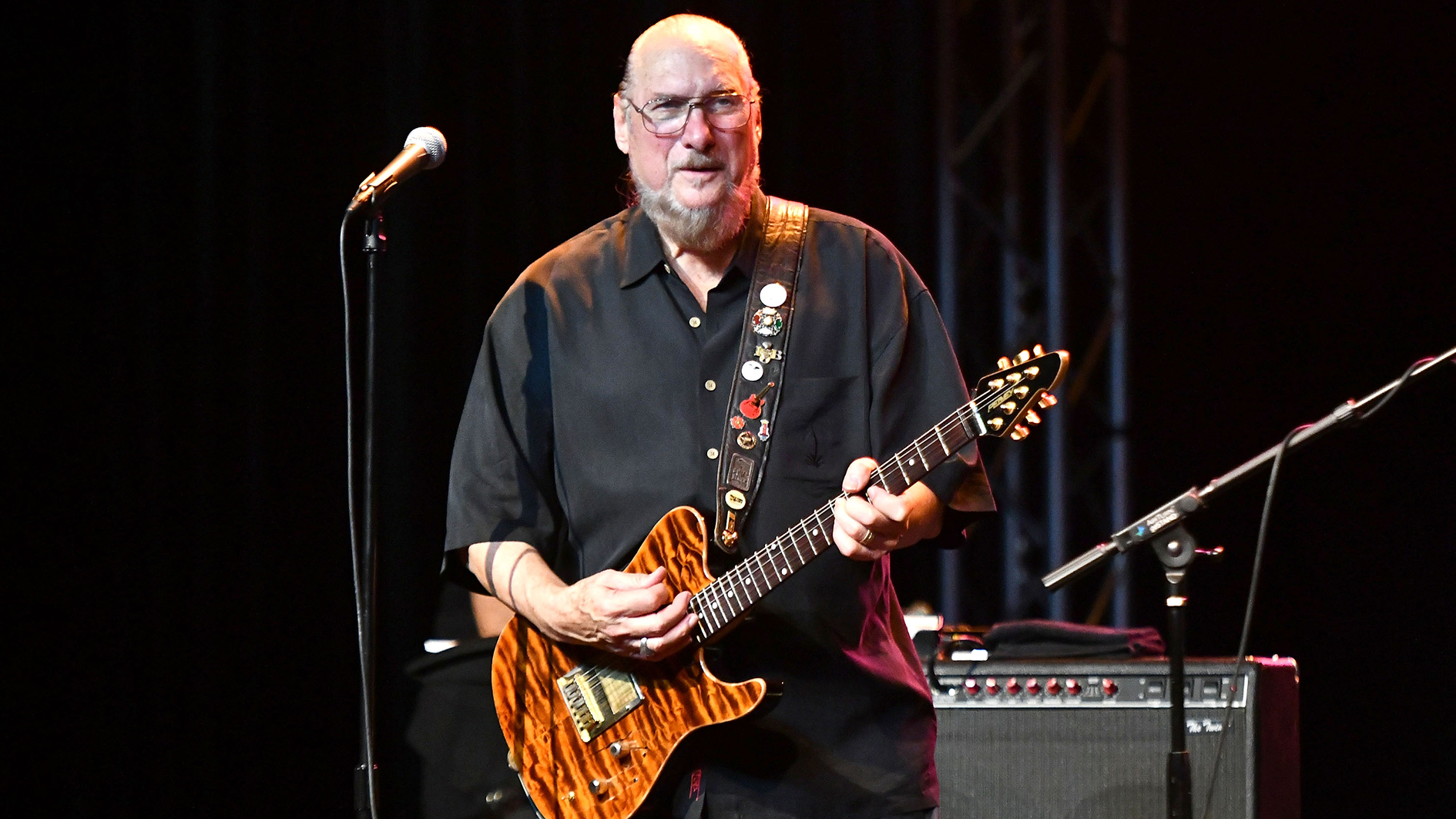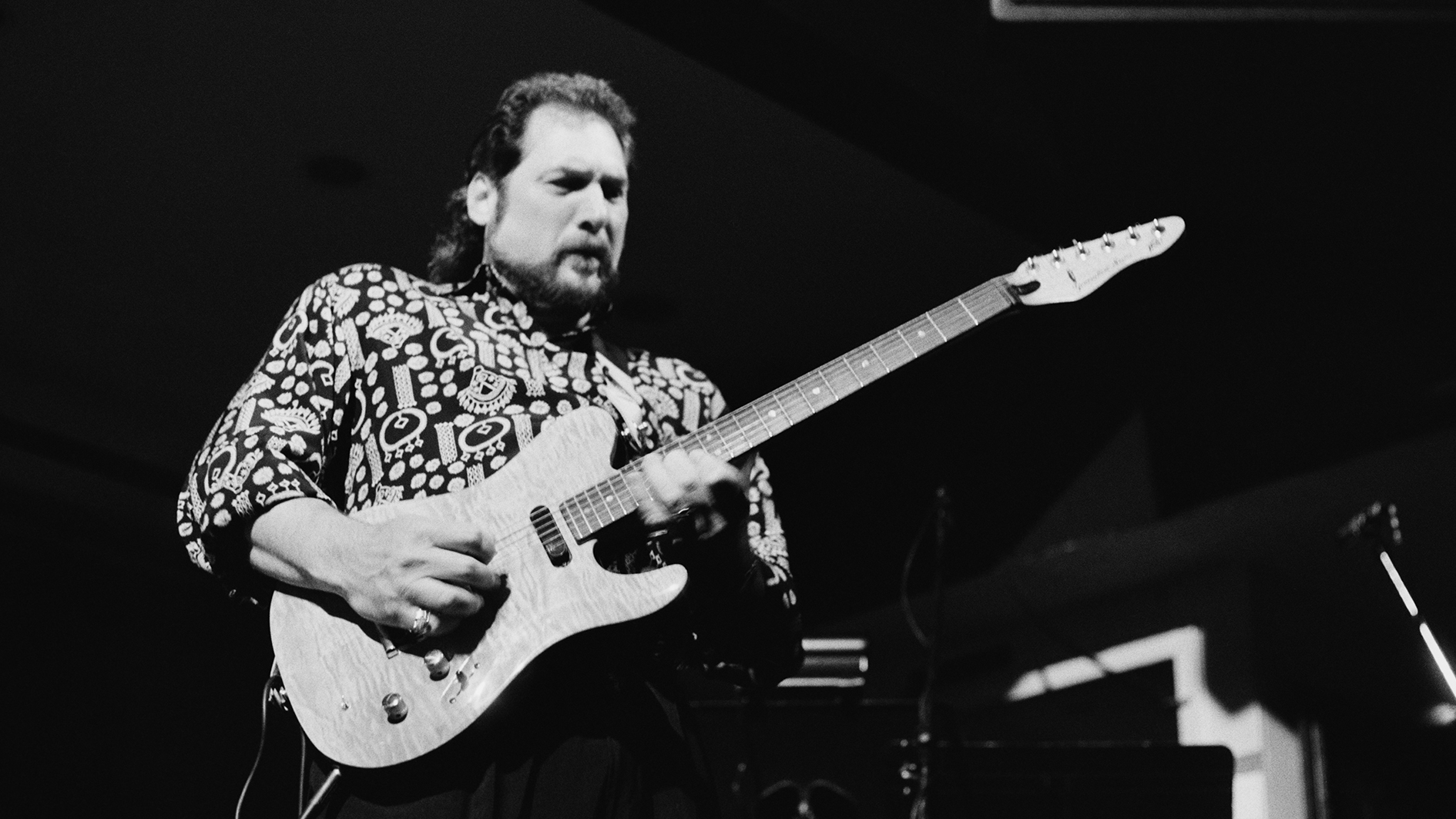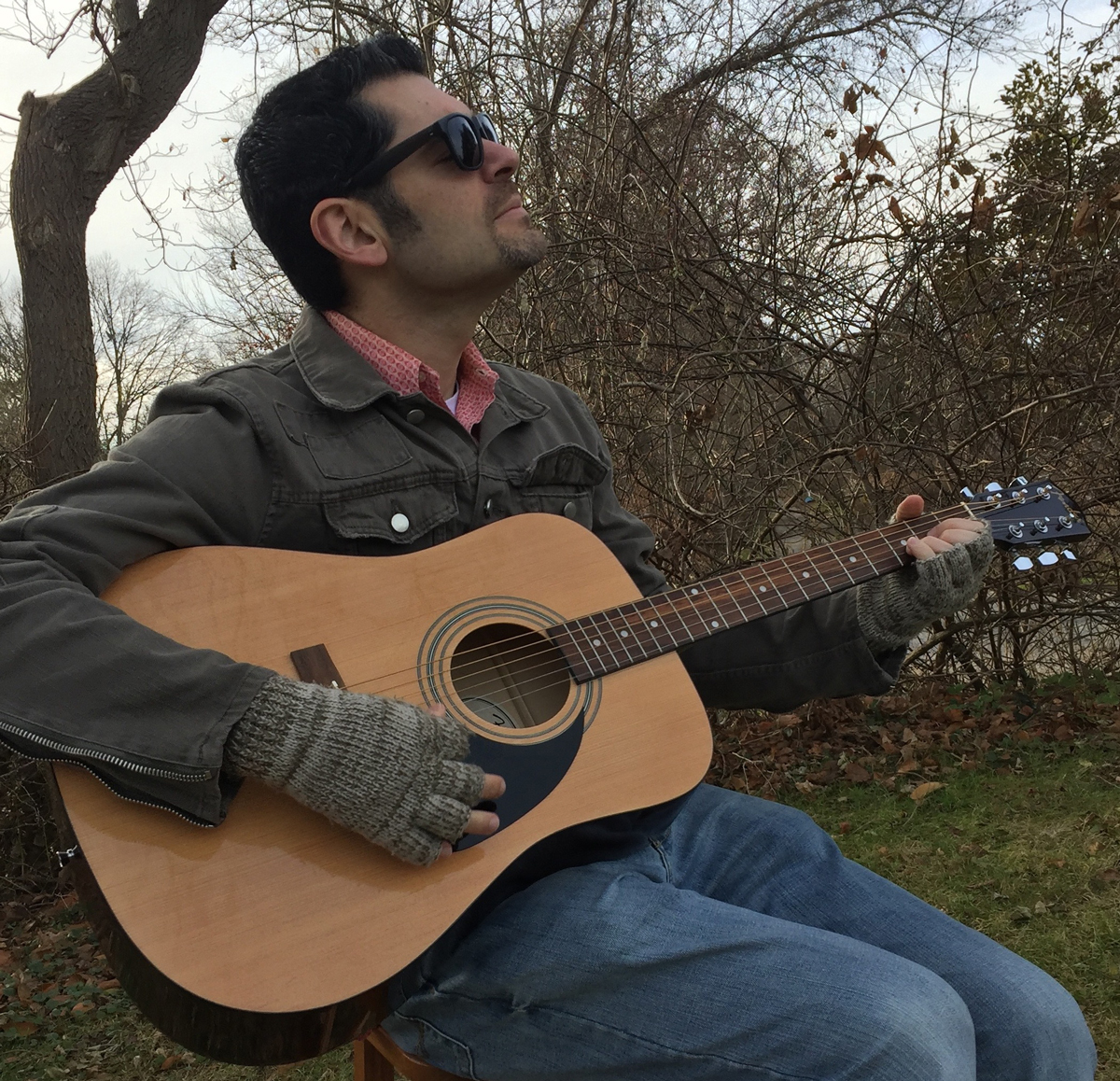Steve Cropper: “I say to my guitars, ‘If you don’t perform tonight, you’re going to be firewood in the morning.’ And it always works!”
The veteran session man and member of the Blues Brothers band discusses his lengthy career, and brand-new solo album, Fire It Up

The amount of R&B/soul classics Steve Cropper has played on is second to none – (Sittin’ On) the Dock of the Bay, Soul Man, Green Onions, In the Midnight Hour and Knock on Wood, among countless others (oh, and by the way, Steve also co-wrote all those tunes, save for Soul Man).
And at the age of 79, he’s still going strong and playing great – as evidenced by his latest solo album, Fire It Up. The album sees Cropper letting singer Roger C. Reale handle all the vocal duties, so that one of the top session guitarists of all-time can focus solely on his main thing – the six-string – as evidenced on such standouts as the title track and Bush Hog.
When Guitar World spoke to Cropper shortly before the release of Fire It Up, such topics as gear, coming up with guitar parts and his most challenging session were discussed.
In the press release for Fire It Up, you said “This is the first real Steve Cropper album since 1969.”
“It’s not the first album I’ve put out since ’69 – I’ve had many albums with my name on them – but I wasn’t very happy with them, and they weren’t what they were. I was reminded about two albums that came out in the early ‘80s on MCA – one of them was called Playin’ My Thing and the second one was called Night After Night – and I thought, ‘Oh, you mean when I was trying to learn how to sing?’ [Laughs].
“The music is OK, but there I am singing. This one, I have Roger C. Reale singing on it, and he’s great. Many people suggested to me about doing an album with another singer – sort of like what Santana did.
“And I said, ‘You’re right about that. We need a real singer.’ But the real singers – it doesn’t matter if they cover any of my songs. The audience would rather hear me sing my own songs – except for the new album, which I think is different.”
Get The Pick Newsletter
All the latest guitar news, interviews, lessons, reviews, deals and more, direct to your inbox!
This isn't the first album I’ve put out since ’69 – I’ve had many albums with my name on them – but I wasn’t very happy with them, and they weren’t what they were
How has your gear taste changed over the years?
“My style hasn’t changed and I’ve changed companies, but the style of guitar – it’s a Telecaster. I’ve always been a Tele man. I started out in high school playing a different guitar, different Gibson guitars – ES-175 and -125 and thin bodies.
“Then I went to a Byrdland which was great, and then my hands grew and they got too big for the neck. So, I changed over.
“And when I asked a friend – who’s not with us anymore, Chips Moman – ‘I’ve been asked to do these sessions. What should I play?’ And he said, ‘You play whatever you want to play, and they’ll tell you if they don’t like it!’
“The good news was they liked it, so I didn’t have to change anything. I’ve tried footswitches and it doesn’t work for me. It just makes me sound different – so I don’t do that. I just pick up a guitar, plug in, and if it doesn’t work, it doesn’t work. I do say this to my guitars – ‘If you don’t perform tonight, you’re going to be firewood in the morning.’ And it always works!
“The amp I’m using now in the studio is a handmade Tweed – kind of based off of the Twin. It’s a Victoria amp made in Chicago. People love it, so I keep that sound. It’s a good marriage. I just keep it set up in the same place in the studio – in an isolated booth. And we just run it along to the board in the control room and that’s what I play.
“The stage is different. I use the Twin on stage – because it has a lot of output, and people can hear it.
“It doesn’t work in a studio because it’s too isolated and it’s very brittle and very bright. It doesn’t work for me. So, I use something that is a little warmer – some older type amps. I use the Victoria but it’s designed after the older amps.”

Let’s talk a bit more about the Tele-shaped Peavey you play.
“It’s modeled after an original Telecaster. The one I’m playing now I’ve been playing for about ten years. It’s specially made – it’s one of a kind. It’s not a prototype. They never expected to put it out, but they made it for me special.
“I just took it one day to a gig and all the guys in the Blues Brothers Band said, ‘Man, that guitar sounds great. Keep it.’ So, I have. I had a Cropper Classic guitar for about seven years and it did real good. And the way that got started, I went to the heads of every company and I said, ‘I need a guitar that is modeled after a Telecaster but doesn’t cost five to six thousand dollars.
“I need one that someone can buy for under a thousand dollars.’ And Hartley [Peavey] said, ‘I’ll make you that guitar. OK.’ If somebody ordered it with a case and all the gear, it would probably be over a thousand. But the guitar itself was under a thousand.”
I play the guitar I play. It takes me a while to break in a guitar. You have to get your own ‘hand’ all in it
What do you think of guitars today?
“I don’t play them enough to know. I play the one I play. It takes me a while to break in a guitar. You have to get your own ‘hand’ all in it. A lot of guys don’t even let people touch their guitar.
“And I’m like, ‘Here, try this one.’ If people play [a guitar] for months at a time, then their oil will run in it – so that to me is more about seasoning than the age. It’s how much stuff comes out of your hand. And I have sweaty hands – so I can season one pretty quickly.”
Are there any guitarists today that you feel do a good job of paying tribute to the vintage soul and R&B styles?
“That’s a toughie. I’ve heard guys do it real good…I’ve heard guys blow it. As far as a guy that can copy somebody’s sound, I think John Mayer is probably the best in the world at it. I heard him play one night, and he was doing Albert King and BB King, and showed the difference. It just blows my mind. So, I know he’s got the Stax sound down too, if he wants to.”
How would you compare backing Stax artists to backing the Blues Brothers?
“You don’t compare them…but some of the songs came out, and it was my suggestion for [the Blues Brothers] to do Soul Man. And we had so much fun doing it, they stuck to it, and it was the only big chart record we ever had – that and Rubber Biscuit, I think.”
What was your favorite session?
“All of them! My favorite session is the one I’m on. I don’t pick one out of another – they’re all fun.”
What was your most challenging session?
“I’ll say Soul Man. And the reason is – people don’t know when I play that lick [first heard 40 seconds into the song], I played it with a Zippo lighter. More like a slide lick. I had to sit in a chair and I always danced at Sam & Dave sessions.
“If it was grooving, I’d get up and start moving around. And I couldn’t do it – because the Zippo lighter would fall off my leg! So, I had to not dance, not do anything, not move – just play.”
How do you find you come up with your best guitar parts?
“Whoever I’m channeling that day. I’m more of a channeler – I’m not a musician. And I get accused of it all the time, and that’s fine. I do what I do. I just go to a session, I like to hear a song for the first time, and just approach it for the first time. I don’t live with the licks that I’m going to play – I change every time. If I hear it in the house I’ll do one thing, if I heard it in the studio I’ll do another thing.”
It was great speaking with you today, Steve. The amount of classic guitar parts you’ve come up with over the years is staggering.
“Most of them are by accident, some of them stick, some of them don’t. And I have always said that when we were in the studio, we didn’t know what was going to be a hit and what wasn’t. That wasn’t our job.
“So, if there were two songs, three songs, or six songs on a session, they all got treated with the same energy. It was in the mix or whatever later when they were finished, we’d sit down and decide what we were going to put out.”
- Steve Cropper's Fire It Up is available from April 23.
Greg is a contributing writer at Guitar World. He has written for other outlets over the years, and has been lucky to interview some of his favorite all-time guitarists and bassists: Tony Iommi, Ace Frehley, Adrian Belew, Andy Summers, East Bay Ray, Billy Corgan, Alex Lifeson, Geddy Lee, Les Claypool, and Mike Watt, among others (and even took lessons from John Petrucci back in the summer of ’91!). He is the author of such books as Grunge Is Dead: The Oral History of Seattle Rock Music, Shredders: The Oral History of Speed Guitar (And More) and Touched by Magic: The Tommy Bolin Story.
“I said, ‘Let’s get Hendrix to play on it.’ His manager said, ‘Jimi’s playing shows back-to-back.’ So we got Jimmy Page”: The hit ’60s single that was supposed to feature Jimi Hendrix… but ended up with Jimmy Page
“It was tour, tour, tour. I had this moment where I was like, ‘What do I even want out of music?’”: Yvette Young’s fretboard wizardry was a wake-up call for modern guitar playing – but with her latest pivot, she’s making music to help emo kids go to sleep









![John Mayer and Bob Weir [left] of Dead & Company photographed against a grey background. Mayer wears a blue overshirt and has his signature Silver Sky on his shoulder. Weir wears grey and a bolo tie.](https://cdn.mos.cms.futurecdn.net/C6niSAybzVCHoYcpJ8ZZgE.jpg)
